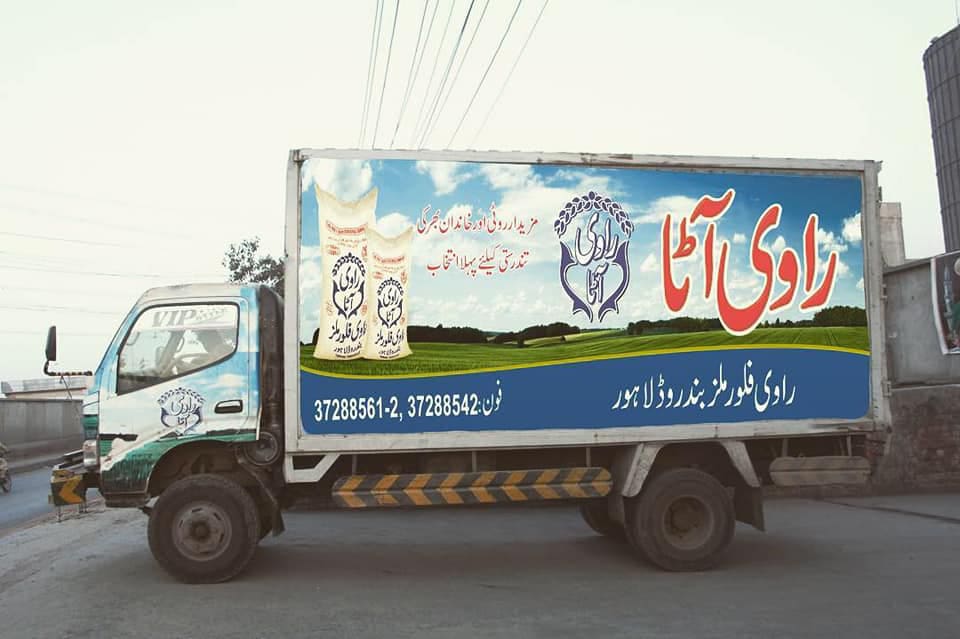
Pakistan’s rising flour prices have prompted its government to build up buffer stocks to limit shortages in the domestic market. Photo: Ravi Flour Mills
PAKISTAN wheat tenders have been a regular occurrence in recent months, but its government’s international procurement campaign has gone up a notch in September, despite the country’s farmers harvesting a record crop earlier in the year.
Wheat is one of Pakistan’s four main agricultural crops and is the largest crop by area, taking up around 40 per cent of the country’s total cultivated land. The other main crops are rice, cotton and sugarcane. Wheat is grown in the “rabi” or winter season, with planting in the October to December period and harvest from March through to late May.
The area planted to wheat late last year increased by 4.2pc compared to 2019 to 9.2 million hectares, and weather conditions throughout the growing season were generally favourable. In-crop fertiliser applications were higher than usual, with urea sales increasing 17pc year on year. Damage due to disease was relatively limited, and there were no reports of locusts. As a result, production increased by 9.6pc from 24.9 million tonnes (Mt) to a record 27.3Mt.
Around 60pc of the wheat produced is retained by farmers for their household consumption and seed for the next crop. The government buys 23-25 per cent of the crop, with private traders lifting the rest of the output.
The government increased the wheat support price for this year’s production to 1800 rupees per 40-kilogram bag (US$271/t) from 1400 rupees per bag (US$209/t) last year.
The Pakistan Government has approved the import of up to 3Mt of duty-free wheat during the 2021-22 marketing year to fill the gap between production and consumption.
The latest USDA forecast has Pakistan pencilled in for 2.5Mt after more than 3.6Mt was imported in the previous year. The government also plans to increase domestic reserves to 4Mt in the current year in a bid to contain inflationary pressure caused by higher domestic prices.
Flour prices climb
However, the government import program has failed to curb the alarming rise in the domestic price of wheat flour. Ramping up imports in a high global price environment, and when the rupee is losing ground against the US dollar, has compounded the issue.
Wheat prices in Pakistan have been relatively high since 2020 due to elevated production costs and lower-than-expected production years from 2018 to 2020, which tightened domestic supply. The country prioritised the accumulation and maintenance of a large wheat reserve after a spike in demand following the COVID-19 pandemic, and the threat of a locust plague last year raised internal wheat values.
Wheat flour is a staple in the Pakistan diet, and hoarding and then profiteering from the resultant supply disruptions has been a market issue for years. The buffer stocks will be used to limit shortages of wheat and wheat flour in the domestic market by smoothing out supply to domestic millers and consumers when stocks tighten.
Another challenge for Pakistan has been the export of wheat by private traders and dishonest merchants who, in turn, profit from the tighter domestic supply outcome. It has forced the government to increase imports to meet demand and keep prices and inflation in check. Exports spiked to almost 2Mt in 2018-19, but have been much lower in recent years. However, Pakistan was a notable exporter following their harvest earlier this year.
The Trading Corporation of Pakistan (TCP) issued a tender mid-way through last week to purchase 640,000t of wheat for January and February 2022 shipment. Offers are sought in a minimum of 100,000t consignments from optional origins, and the deadline for submissions to the tender is September 29. As is the custom with most international tenders, the TCP reserves the right to purchase more or less than the specified tender volume.
Offers for the previous tender of 500,000t November 11 to December 30 shipment only closed on Monday of last week. Reports emerged at week’s end that the TCP had purchased 575,000t, exercising its right to buy more than the tender quantity. The price is believed to be $383.50/t, including cost and freight (c and f), after several global exporters agreed to match the lowest price offered in the first round of the tender. Trading houses Cargill, Agrocorp, Falconbridge and CHS are understood to have been the successful sellers. The previous tender for 550,000t for October 1-November 30 shipment had closed just 10 days earlier on September 10. Reports suggest that the TCP settled on 405,000t of optional-origin wheat at $369.50/t c and f, with Cargill and CHS the victorious tender participants.
Indian surplus no help
The irony of the situation for Pakistan is that its eastern neighbour, India, is an active wheat exporter this year. While India is exporting to other countries in the Indian Ocean rim and South-east Asia, Pakistan is spending large sums to import from the world’s major exporters at prices far higher than India is offering to other countries in the region.
Article 370, which relates to the autonomy for the Jammu and Kashmir regions, is the sticking point. The Economic Coordination Committee (ECC) is responsible for the country’s economic security. In April of this year, the Pakistan cabinet overturned an ECC decision to allow imports of agricultural commodities from India “until article 370 is restored” by India.
The spate of large wheat tenders by the TCP in September put Pakistan on track to surpass both the USDA import estimate and ECC’s duty-free import threshold. The overt nature of Pakistan’s import program is an apparent attempt to appease its people, instead of addressing the ground realities relating to inventories at mills and warehouses, better domestic-pricing mechanisms and the ongoing hoarding and profiteering by stakeholders, and not to mention the precious foreign reserves being eaten up by such an expansive import program.

HAVE YOUR SAY